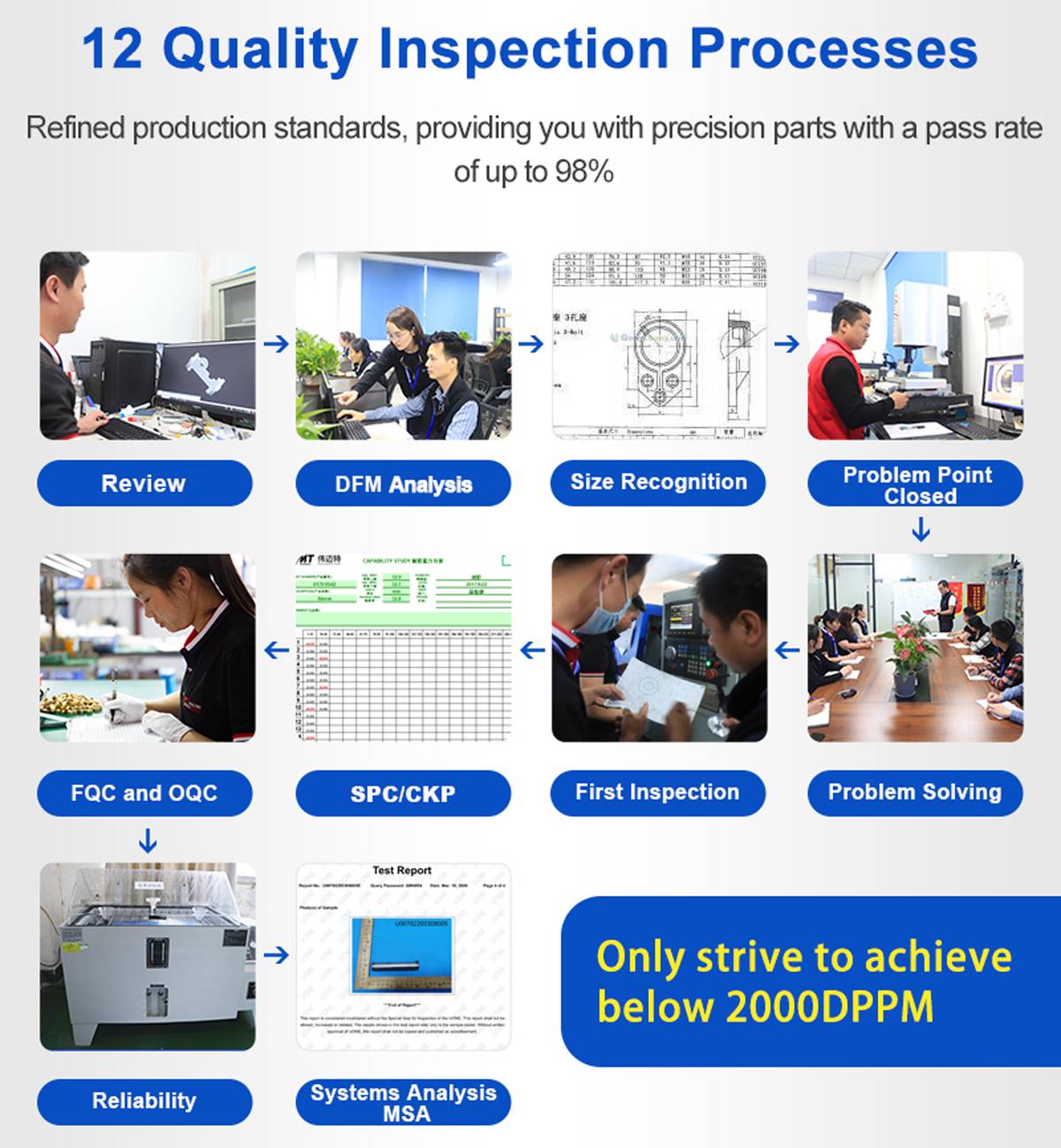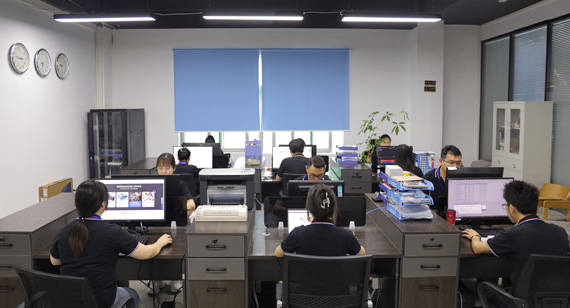15 years one-stop China custom CNC machining parts factory

Hey there I’m VMT Sam!
With 25 years of CNC machining experience we are committed to helping clients overcome 10000 complex part-processing challenges all to contribute to a better life through intelligent manufacturing. Contact us now
 116 |
Published by VMT at Mar 16 2024
116 |
Published by VMT at Mar 16 2024
Strategies for Dealing with Defective CNC Machining Parts and After-Sales Service
In the field of CNC machining parts manufacturing, the occurrence of defective products is unavoidable. When customers encounter issues with CNC machining parts, how to swiftly and effectively handle after-sales service not only impacts customer satisfaction but also reflects the professional capabilities and service standards of CNC machining factories. This article will delve into the strategies for dealing with defective CNC machining parts and outline the corresponding after-sales service process.

I. Classification and Causes of Defective CNC Machining Parts
Defective CNC machining parts can be classified into several categories, including dimensional deviations, poor surface quality, material defects, and assembly issues. These problems may arise from various causes such as equipment malfunctions, improper process parameters, operational errors, and material-related issues. Understanding the classification and causes of defects helps the factory quickly identify issues and implement appropriate solutions.
II. Strategies: Prevention and Quality Control
Preventive Measures:
Optimize production processes, regularly maintain equipment, and enhance employee skills to minimize the occurrence of defective products.
Strengthen quality control of raw materials to ensure the use of qualified materials in production.
Establish a comprehensive quality inspection system, rigorously controlling critical aspects of the production process.
Conduct regular sampling and full inspections to ensure that product quality meets customer requirements.

III. After-Sales Service Process
When customers encounter defective CNC machining parts, the factory should promptly initiate the after-sales service process, following these steps:
Customer Feedback:
Customers should promptly provide detailed information about defective products, including photos and dimensional data.
Problem Confirmation:
The factory should swiftly arrange for technical personnel to analyze and confirm the defects, determining the specific root causes.
Solution Formulation:
Based on the analysis results, the factory should devise an appropriate solution, which may include returns, replacements, or repairs.
Solution Implementation:
After reaching an agreement with the customer, the factory should promptly implement the chosen solution to ensure timely resolution of the issue.
Follow-Up and Feedback:
After implementing the solution, the factory should maintain communication with the customer, track the resolution progress, and collect feedback to further improve after-sales service.

IV. Key Elements in After-Sales Service
Rapid Response:
The factory should respond quickly to customer reports of defective products, demonstrating a high level of professionalism and responsibility.
Effective Communication:
Maintaining open and effective communication with customers ensures a thorough understanding of their needs and issues, facilitating mutual agreement on solutions.
Technical Support:
Providing robust technical support ensures the effective implementation of solutions, along with offering relevant technical guidance and advice to customers.
Continuous Improvement:
Based on customer feedback and defect analyses, the factory should continually optimize production processes and quality control measures to reduce defect rates and enhance customer satisfaction.
V. Case Study
Taking a specific CNC machining factory as an example, when facing customer reports of defective products, the factory swiftly assembled an after-sales service team comprising technical experts. After detailed analysis, it was confirmed that the defects were primarily due to equipment malfunctions causing dimensional deviations. The factory promptly repaired and calibrated the equipment, intensifying routine maintenance and checks. Collaborating with the customer, defective products were replaced, and the factory provided necessary technical support and after-sales services. This case illustrates the importance of prompt and effective measures in addressing defects, ensuring customer problems are resolved promptly, and continuously elevating the factory's professional capabilities and service standards.
VI. Conclusion and Outlook
Strategies for addressing defective CNC machining parts and after-sales service are pivotal aspects reflecting the professional capabilities and service standards of CNC machining factories. Through measures such as optimizing production processes, enhancing quality control, and establishing comprehensive after-sales service processes, factories can effectively reduce the occurrence of defective products and improve customer satisfaction. In the future, as CNC machining technology continues to advance and customer demands evolve, CNC machining factories must continually enhance their professional capabilities and service standards, providing customers with high-quality and efficient CNC machining part manufacturing services. Simultaneously, government and various sectors of society should strengthen support and guidance for the CNC machining industry, promoting its healthy development and transformation.
Ready To Start Your Next Project?
Get Instant Quote

Request a Free Quote
Send us a message if you have any questions or request a quote. We will get back to you ASAP!